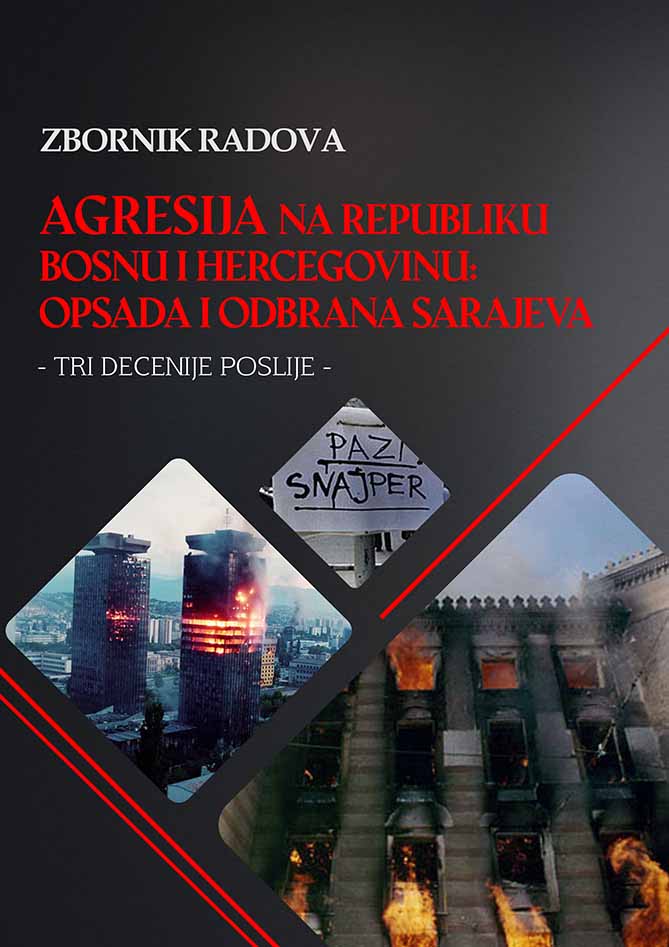ULOGA MEĐUNARODNE ZAJEDNICE U KONTEKSTU AGRESIJE NA REPUBLIKU BOSNU I HERCEGOVINU
ROLE OF THE INTERNATIONAL COMMUNITY IN THE CONTEXT OF THE AGGRESSION AGAINST BOSNIA AND HERZEGOVINA
Author(s): Alija Kožljak
Subject(s): International Law, Military history, Government/Political systems, International relations/trade, Political behavior, Studies in violence and power, Transformation Period (1990 - 2010), Peace and Conflict Studies
Published by: Institut za istraživanje zločina protiv čovječnosti i međunarodnog prava Univerziteta u Sarajevu
Keywords: Aggression; Bosnia and Herzegovina; International community; United Nations; European Union; NATO;
Summary/Abstract: International community has, on its own will, taken the responsibility to resolve the situation in the then Socialist Federative Republic of Yugoslavia, following its dissolution. This has particularly applied to the Republic of Bosnia and Herzegovina, which was threatened by an open aggression, even disappearance. To that end, ample peace plans were designed, and to a large extent based on ethnic divisions, which suggested intentions of the international community in relation to Bosnia and Herzegovina. Lack of a good will and unity aimed at prevention of aggression against Bosnia and Herzegovina, including the prevention of mass crimes against its citizens, including the crime of genocide, as well as failure to prevent the destruction of state owned infrastructure, silent approval of the several years long siege of the capital, clearly speaks about the attitude on the part of international actors towards the aggressors and innocent victims, particularly the state of Bosnia and Herzegovina. Lack of condemnation of the aggression, and permanent attempts to equalize the victims and aggressors serve as a direct confirmation that the initial attitude towards Bosnia and Herzegovina did not significantly change, although the circumstances to a large extent did. Current development of the situation on a global plan affects the changes in the perception of threat, including the relevance of the Western Balkans, and more specifically Bosnia and Herzegovina, which now suggests the new discourse of the West (EU and NATO Member States) in relation to Bosnia and Herzegovina. The paper is structured in five chapters: Dissolution of SFRY and international recognition of the Republic of Bosnia and Herzegovina; Quest for a peace solution in Bosnia and Herzegovina; Intensification of the international community engagement; Final NATO operation and peace establishment; Post-war reaction of the international community in Bosnia and Herzegovina, and Final considerations. The study is based on the qualitative analysis of documents and critical analysis of activities and actions of the international community in Bosnia and Herzegovina in the period 1991-2022.
Book: AGRESIJA NA REPUBLIKU BOSNU I HERCEGOVINU: OPSADA I ODBRANA SARAJEVA – TRI DECENIJE POSLIJE –
- Page Range: 117-137
- Page Count: 21
- Publication Year: 2023
- Language: Bosnian
- Content File-PDF

